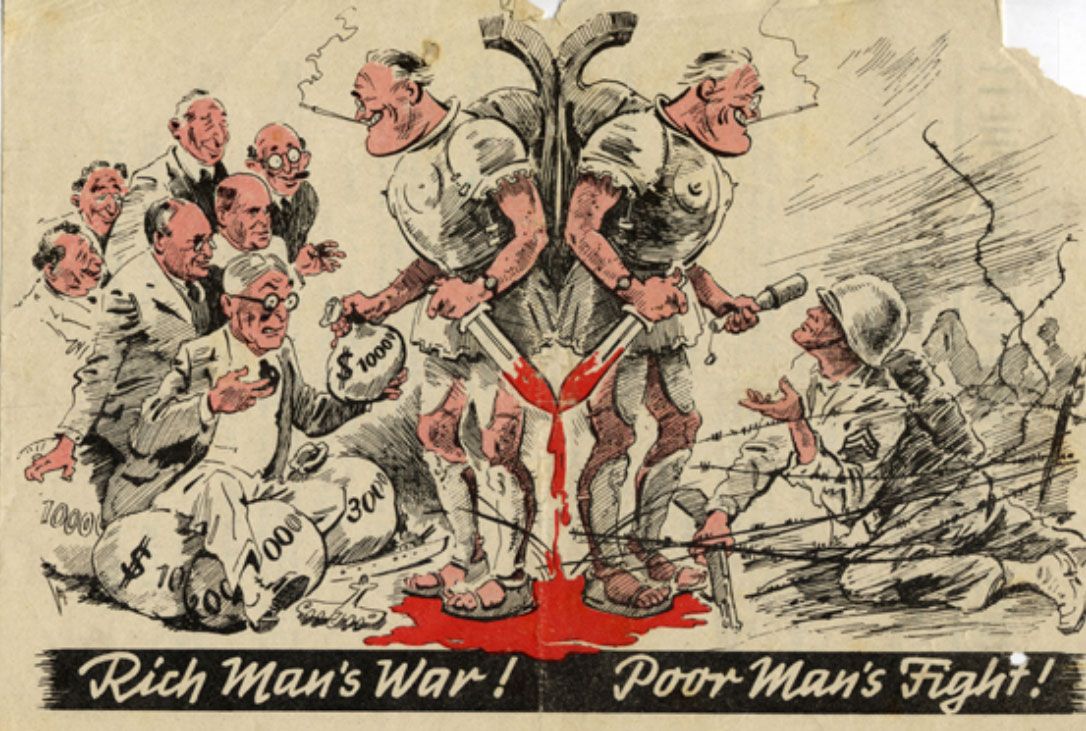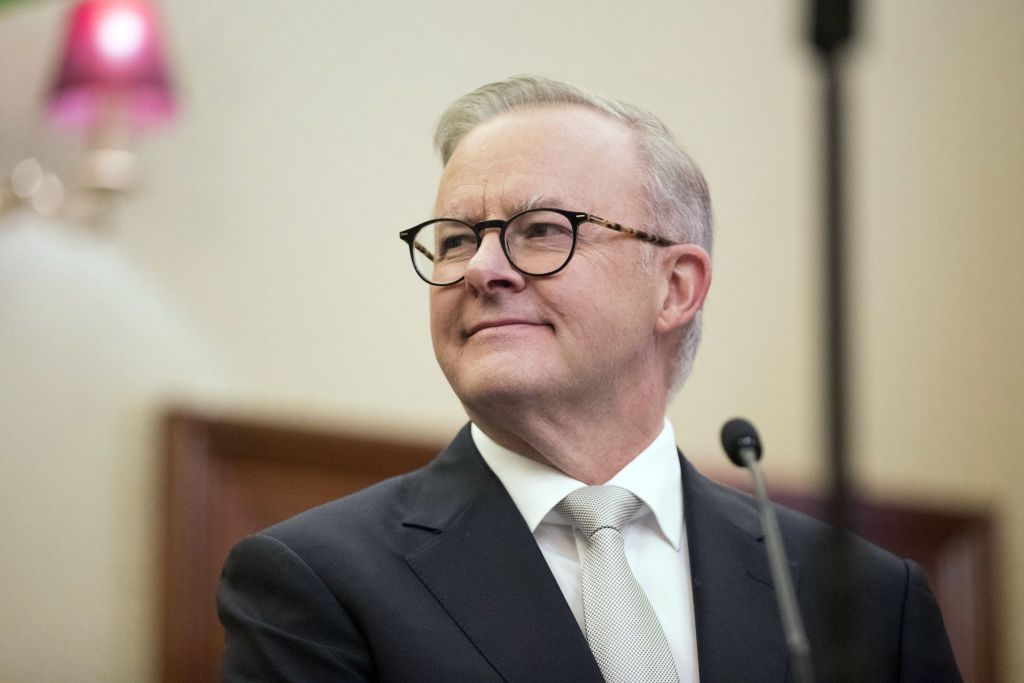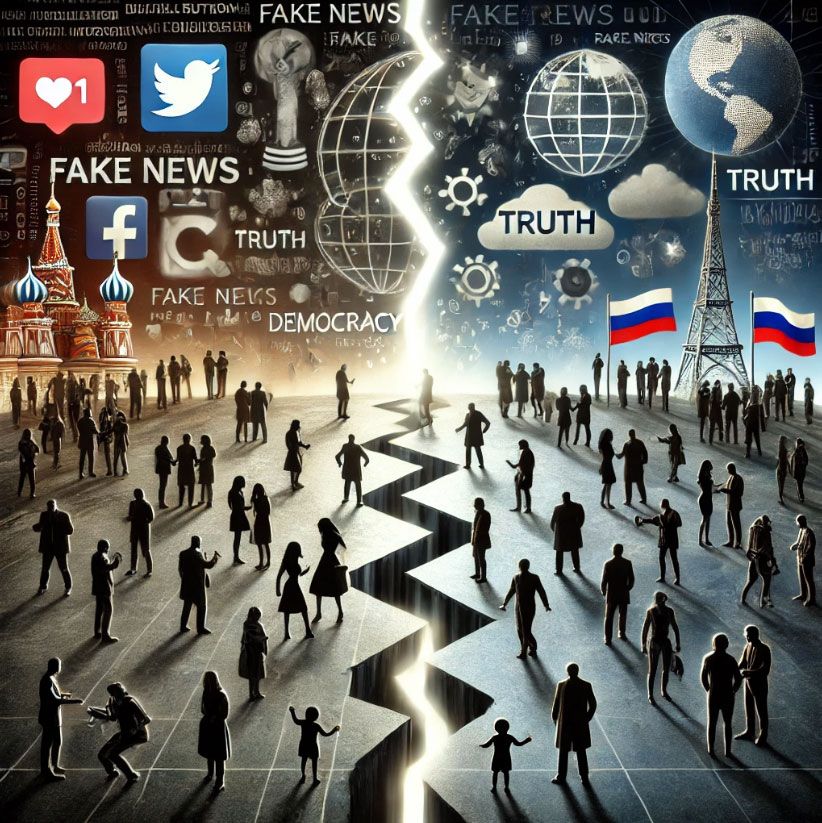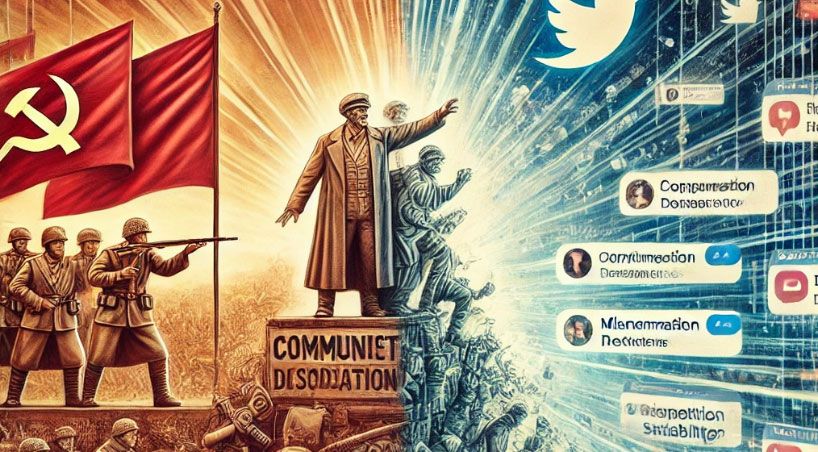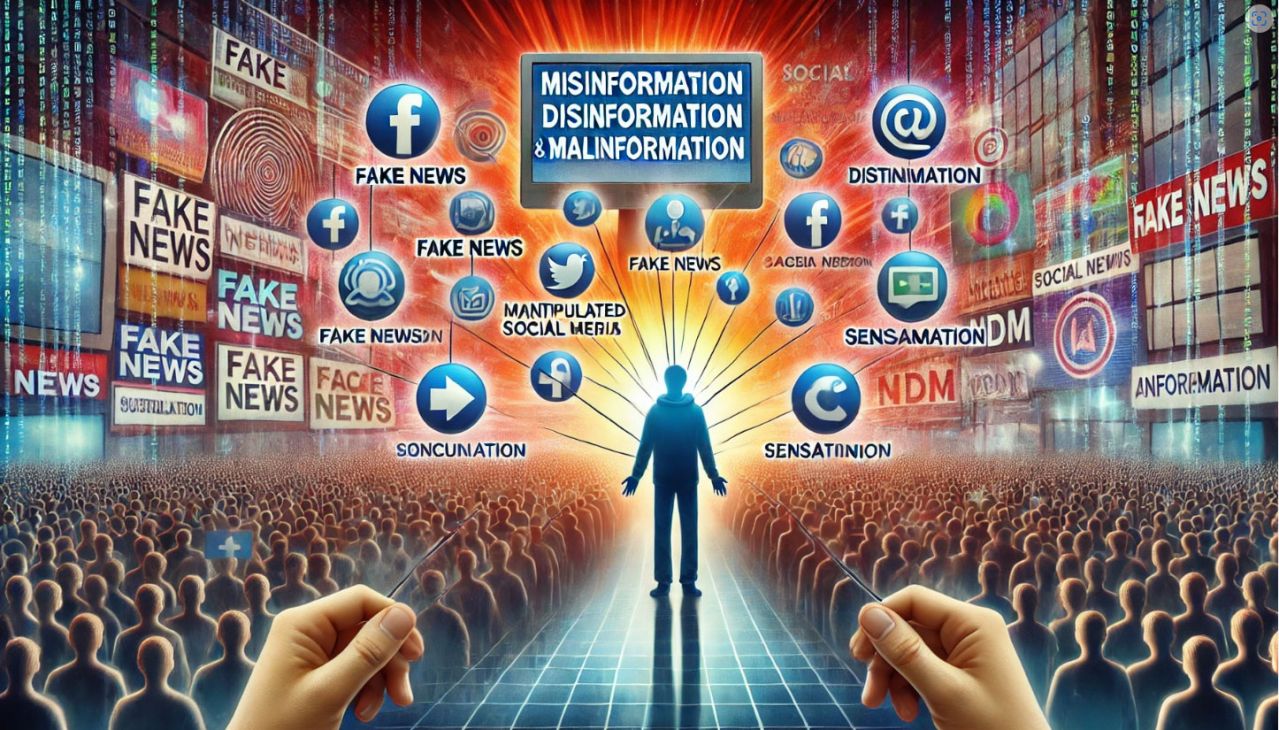In the early 20th century, European industrialists and political elites emboldened fascist leaders to safeguard their wealth against the perceived threats of socialism and economic reform.
German magnates financed Adolf Hitler, while Italian aristocrats aligned with Benito Mussolini, believing authoritarian rule would preserve their status. Their gamble not only destroyed millions of lives but also dismantled the very societies they sought to protect.
The consequences were catastrophic: global conflict, genocide, and the ruin of Europe's political and economic infrastructure.
Today, history threatens to repeat itself.
Modern-day oligarchs and tech magnates exploit economic disparities and political unrest to foster nationalist, anti-democratic movements.
Figures like Elon Musk and Peter Thiel, having amassed unprecedented wealth through systems of innovation and public support, now amplify authoritarian rhetoric and align with far-right ideologies that destabilize democratic norms.
Media moguls such as Rupert Murdoch have long manipulated public discourse to sow division, enabling the rise of reactionary politics across Europe and beyond.
This manipulation is not incidental; it is strategic.
By promoting far-right ideologies, these elites deflect scrutiny from their monopolistic practices and economic exploitation. Nationalism and xenophobia become tools to fracture social cohesion, diverting public anger away from systemic inequality and toward marginalized communities.
This playbook mirrors that of the past—when fear, division, and authoritarianism led Europe into darkness.
The European Union was founded to prevent such tragedies, fostering unity through shared economic and political frameworks.
Yet, this unity is under siege. The rise of nationalist governance in Hungary, the lingering impact of Brexit, and the growing influence of far-right parties across the continent reveal alarming cracks in Europe's foundation.
These movements threaten not only democracy but the fragile peace that has endured for decades.
If history teaches anything, it is that complacency in the face of rising authoritarianism is perilous. The wealthy elites who finance and normalize far-right ideologies are not mere political players—they are architects of instability.
Left unchecked, their greed and self-preservation will unravel the European project, reigniting old rivalries and sowing the seeds of future conflict.
Europe must recognize these individuals as the existential threats they are.
Safeguarding democracy requires more than resisting fringe extremism; it demands holding accountable those who empower and finance it.
The lessons of the past are clear, and the path forward must be one of vigilance, solidarity, and an unwavering commitment to peace.
The time to act is now—before history repeats itself.
I. Historical Case Studies: Elite Support for Far-Right Regimes
History offers sobering examples of how powerful elites have enabled far-right regimes, leading to catastrophic consequences. Their pursuit of wealth and influence often blinds them to the destructive forces they help unleash, ultimately destabilizing the very societies they depend upon.
1. German Industrialists and the Rise of Adolf Hitler
In the 1930s, Germany's leading industrialists and financiers, fearing the rise of communism and socialist reforms, funneled money into the National Socialist German Workers' Party (Nazi Party).
Figures like Fritz Thyssen and industrial conglomerates such as IG Farben provided financial backing to Adolf Hitler, believing they could control his radicalism for their own economic gain. Instead, their support allowed Hitler to dismantle democratic institutions, leading to World War II and the Holocaust—an unprecedented human and economic catastrophe.
2. Italian Aristocrats and Mussolini's Fascism
In post-World War I Italy, the aristocracy and business elites faced widespread worker strikes and socialist movements. To safeguard their wealth and privilege, they supported Benito Mussolini's fascist movement, providing funding and political legitimacy.
This alliance enabled Mussolini to seize power in 1922, dismantle democratic governance, and plunge Italy into dictatorship and disastrous wars. Ultimately, these elites underestimated Mussolini's ambitions, resulting in Italy's devastation during World War II.
3. Franco's Spain: Corporate and Church Alliances
During the Spanish Civil War (1936-1939), Francisco Franco's nationalist forces received substantial support from wealthy landowners, industrialists, and the Catholic Church.
Fearing the loss of their power to leftist republicans, these elites backed Franco's authoritarian regime, leading to decades of repression, economic stagnation, and international isolation for Spain. The alliance of wealth and authoritarianism crushed democratic aspirations and inflicted long-term damage on Spanish society.
4. The Role of American and British Elites in Appeasement
Though not directly supporting fascist regimes, segments of the British and American elite in the 1930s favored appeasement policies toward Nazi Germany.
Influenced by business interests and anti-communist sentiment, figures like British Prime Minister Neville Chamberlain underestimated Hitler's expansionism. This passive complicity allowed Nazi Germany to grow unchecked, ultimately forcing a global conflict that these elites had hoped to avoid.
These historical examples reveal a consistent pattern: elites, in their pursuit of self-preservation, empower authoritarian movements that ultimately destroy social and political stability.
This dangerous dynamic echoes in the modern world, threatening to unravel the hard-won peace in Europe.
II. Modern Figures and Actions: Empowering the Far Right Today
The following examples represent just a few of the powerful figures contributing to the rise of far-right movements. This list is not exhaustive but highlights key players whose actions have significant impacts on democratic stability.
1. Elon Musk and the Weaponization of Social Media
Elon Musk, once celebrated for technological innovation, now uses his influence over platforms like X (formerly Twitter) to spread anti-democratic rhetoric. His platform tolerates misinformation and conspiracy theories, creating fertile ground for far-right ideologies to grow. Musk's open support for authoritarian figures and his attacks on regulatory institutions weaken public trust in democratic governance.
2. Peter Thiel's Funding of Far-Right Movements
Tech billionaire Peter Thiel has channeled significant resources into far-right political candidates and movements across the U.S. and Europe. Thiel's investments in surveillance technology and his advocacy for nationalist policies reveal a dangerous alignment with anti-democratic forces that threaten civil liberties and social cohesion.
3. Rupert Murdoch and Media Manipulation
Media tycoon Rupert Murdoch has long used his vast media empire to amplify far-right narratives. His outlets, including Fox News and various European media holdings, fuel anti-immigrant sentiment, climate denialism, and distrust in democratic institutions—deepening societal divisions and enabling reactionary politics.
4. Viktor Orbán's Alliance with Corporate Interests
Hungary's Prime Minister Viktor Orbán has cultivated close ties with business elites to consolidate his authoritarian rule. Through state capture and suppression of media freedom, Orbán has eroded Hungary's democracy while benefiting wealthy allies who profit from corruption and patronage networks.
III. Consequences for Europe: Fragile Peace at Risk
The resurgence of far-right ideologies in Europe, bolstered by wealthy elites, poses significant dangers to the continent's peace and democratic fabric.
1. Democratic Backsliding
Far-right movements erode democratic institutions by undermining judicial independence, suppressing free media, and manipulating electoral systems. As seen in Hungary, these tactics consolidate power and weaken checks and balances essential for democracy.
2. Rise in Nationalism and Xenophobia
Elites promoting nationalist rhetoric foster division and scapegoating of immigrants and minorities. This fuels hate crimes, social unrest, and deepens societal fractures, threatening the social cohesion necessary for stable governance.
3. Threats to European Unity
The European Union's unity is at risk as far-right parties push for nationalism and anti-EU policies. Brexit has already weakened the EU, and similar movements across Europe could dismantle decades of cooperative peacebuilding.
4. Increased Risk of Conflict
History shows that unchecked nationalism and authoritarianism often lead to conflict. Far-right militarization and aggressive foreign policies increase the risk of both internal strife and cross-border conflicts.
5. Economic Instability
Far-right policies often result in economic isolation, protectionism, and corruption. These actions can destabilize markets, reduce investor confidence, and worsen economic inequality, creating fertile ground for further extremism.
IV. Solutions and Resistance: Defending Europe's Democratic Future
Confronting the growing threat of far-right movements empowered by self-serving elites requires decisive and unified action. Europe must adopt a multi-faceted approach to safeguard democracy and maintain peace across the continent.
1. Strengthening Democratic Institutions
Robust democratic institutions are the first line of defense against authoritarianism. Reinforcing judicial independence, protecting free press, and ensuring fair elections are essential to maintaining democratic integrity. International bodies like the EU must hold member states accountable for undermining democratic norms.
2. Regulating Media and Technology
Unchecked media empires and social media platforms have become breeding grounds for extremist ideologies. Stronger regulations on media ownership, digital misinformation, and platform accountability can curtail the spread of far-right propaganda and protect public discourse.
3. Promoting Economic Justice
Addressing economic inequality diminishes the appeal of far-right populism. Progressive taxation, social safety nets, and policies promoting social mobility can reduce the economic anxieties that far-right movements exploit.
4. Building Transnational Solidarity
European nations must strengthen alliances to collectively resist authoritarianism. Cross-border cooperation on security, intelligence sharing, and democratic advocacy can help counter the influence of far-right networks.
5. Holding Elites Accountable
Transparency and accountability for the elites financing far-right movements are crucial. Implementing legal frameworks to investigate and penalize financial support for extremist groups will deter further destabilization efforts.
Europe's future depends on its ability to learn from history and act decisively. Only through collective resilience can the continent defend its democratic foundations and ensure lasting peace.
V. Conclusion: Recognizing and Resisting a Perennial Threat
History has shown, time and again, that when elites prioritize their wealth and power over the common good, the consequences are catastrophic.
The individuals and forces enabling the far right today are not anomalies—they are part of a recurring historical process that has repeatedly led to oppression, conflict, and societal collapse.
By exploiting democratic systems and then working to dismantle them, these elites place themselves in direct opposition to the fundamental values of humanity: equality, justice, and peace.
To safeguard our future, we must confront this threat head-on. Civil society has the right—and the responsibility—to defend itself against those who seek to erode its foundations.
This means not only identifying and exposing the individuals and networks behind far-right movements but also actively working to dismantle the systems that allow them to thrive. We must quantify their influence, qualify their actions as threats to democratic order, and communicate this danger to the public with clarity and urgency.
Complacency is no longer an option. Recognizing these elites for what they are—architects of division and conflict—is the first step.
The next must be collective action rooted in solidarity, vigilance, and an unwavering commitment to democratic values. Europe has overcome immense challenges before; it can and must do so again.
The fight for democracy and peace is not a passive endeavor. It is a continuous struggle that requires every generation to stand guard against those who would undermine it.
Now is the time to act decisively, before history repeats itself—with consequences too grave to ignore.
Join us!
Do you like our work? Then help us with some coffee, or get a membership and buy a shirt!
BMAC: https://buymeacoffee.com/nafoforum
Fundraiser: https://www.gofundme.com/manage/support-disinformation-education-public-education-forum
Shirt shop: https://www.bonfire.com/store/nafo-forum-shop/
Patreon: https://www.patreon.com/c/PublicEducationForum


